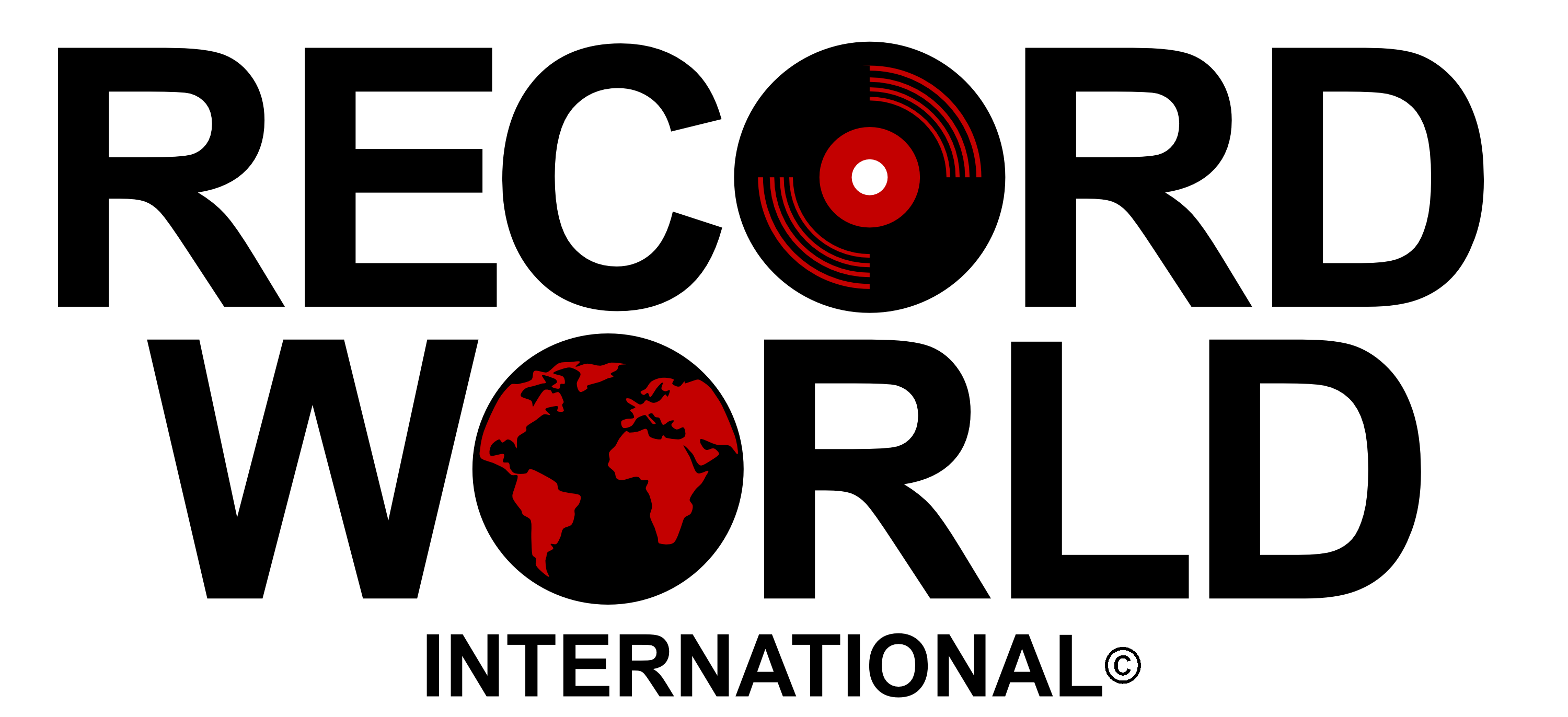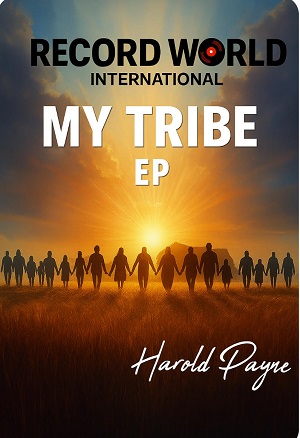Submitted by Lisa Hartt
In a music career spanning more than five decades, Harold Payne has worn many hats: multi-platinum songwriter, improvisational performer, global traveler, and tireless advocate for the power of positive music. He has written with and for legends like Bobby Womack, Patti LaBelle, Rod Stewart, and his songs have appeared in films from Beverly Hills Cop II to Splash. Yet today, at a moment when the world feels fragmented, Payne’s focus is simple, human, and profoundly connective: his new EP, My Tribe.
It’s a collection born not of commerce but of calling—a suite of songs that circle around unity, gratitude, and the recognition that music can be both a balm and a gathering place. “Most of the songs that I’ve been creating for the last few decades have been on the positive, uplifting side,” Payne says. “That wasn’t just a strategy. It’s who I am. It’s what I naturally gravitate to.”
Building Music in the Public Square
If My Tribe feels like a distillation of Payne’s ethos, the seed was planted during the pandemic. In April 2020, encouraged by artist coach Rick Barker, Payne overcame his reservations about age, lighting, and camera angles, and went live on Facebook. His first broadcast was a tribute to his hero Bill Withers, who had just passed away. The response was overwhelming.
What began as an impromptu offering became a weekly ritual. Payne launched Third Thursdays—45-minute shows of covers, originals, and improvised songs—before realizing the shorter, sharper format of Two Song Tuesday resonated more. Each Tuesday, he offers one original, one cover, and one fully improvised song, woven from suggestions tossed at him in real time.
“I found this unit,” Payne recalls. “And it was a perfect amount of time. People could tune in live or watch later, and it felt like a little gift.” Amid isolation, Payne created what he calls the “public square”—a virtual gathering place where his community could meet, laugh, grieve, and connect.
That same ethos—radical presence, generosity, and improvisation—runs through My Tribe.
Quiet Heroes and Unspoken Histories
One of the EP’s most powerful songs, Quiet Heroes, emerged from Payne’s deep ties to the Japanese American community in Southern California. Growing up, more than half the families on his block were of Japanese ancestry, and Payne married into a Sansei family. Yet when he was 18, he was unaware of the internment camps and segregated regiments of World War II until a chance conversation at a local gas station.
A neighbor, Harry Komatsu, casually mentioned attending a celebration in France. Payne pressed for details and learned Harry’s unit—the legendary 442nd Regimental Combat Team—had liberated a French town from the Nazis. “I was blown away,” Payne says. “These were guys I looked up to as neighbors and role models, and I had no idea what they had lived through.”
That revelation sparked a lifelong commitment to honoring Japanese American veterans. Quiet Heroes was first written for an event commemorating Nisei soldiers and has since taken on a life of its own. Payne has performed it at large-scale commemorations, seen it featured in documentaries, and even been invited to Hawaii and Europe to share it at memorials.
“It’s amazing what one song can create,” he reflects. “I wrote it to honor their sacrifice, and now it’s become a bridge—connecting me to communities, to filmmakers, to history itself.”
Songs That Save the World
Payne’s belief in music as a unifying force isn’t abstract—it runs through every project. His collaboration with longtime friend Bobby Womack is a case in point. Their song Daylight was covered by artists from Kelly Rowland to Leon Russell, but it was their later project with Damon Albarn of Gorillaz and producer Richard Russell that proved transformative.
Brought somewhat reluctantly into the sessions for Womack’s 2012 album The Bravest Man in the Universe, Payne quickly earned his place, contributing to 18 songs that won the UK’s prestigious Q Award for Album of the Year. Its opening line, “The bravest man in the universe is the one who has forgiven first,” came directly from Payne’s pen.
“That project taught me so much about showing up,” he says. “I wasn’t sure I belonged, but I put my nose to the grindstone, and it worked out. You never know where a song will take you.”
The original title Break the Chain became a derivative copyright for “The Bravest Man in the Universe” and for this EP Payne has reprised his song and written a new bridge section.
The same spirit animates The Song That Saved the World, co-written with Kevin Fisher after a challenge from friend Craig Hamilton. Imagining a “United Nations of music,” where people leave politics and weapons behind to join in song, the piece feels especially timely. “The idea of everyone coming together with their instruments, whatever they may be—that image just inspires me,” Payne says.
Angels Without Wings
Not all of Payne’s songs arrive from grand concepts. Sometimes they spring from everyday needs. Asked to perform at a church service on angels, he realized he had no fitting song in his repertoire—and wrote Angels Don’t Always Wear Wings the night before.
“I’ve always had a soft spot for people who do things quietly, without credit,” he explains. “Caregivers, unsung heroes, those who give without seeking attention. I get a lot of recognition as a musician, but there are so many people out there doing greater acts in silence. That’s who I wanted to honor.”
It’s a recurring theme in Payne’s catalogue: shining light not only on celebrities or soldiers, but on ordinary people living extraordinary lives.
From Improv to Anthem: “This Is My Tribe”
The title song of Payne’s new EP began as an improvisation at a house concert in Santa Monica. Prompted by an audience suggestion, Payne spun the word “tribe” into a chorus— “T-R-I-B-E”—and felt its resonance immediately. Later, performing with transformational comic Kyle Cease at the Dolby Theatre in Los Angeles, he folded the chorus into a recap song for thousands of people. The response convinced him to turn it into a full piece.
True to his collaborative spirit, Payne brought in songwriter Patricia Bahia, who had originally invited him to the Santa Monica concert, to finish the song. The result, This Is My Tribe, is an anthem about community—joyful, catchy, and deeply sincere.
“Sometimes people question the word ‘tribe,’” Payne admits. “But I see it as a tribute, an honor. It’s about shared consciousness. It’s about gathering the people who lift you up, who keep you afloat.”
The EP also includes Out of Many, One People, “a song I wrote when I opened for Jamaican actor Debra Ehrhardt’s solo show which helped inspire my solo show “Under the Radar Over the Moon.”
Together, the songs span genres from folk to reggae to soul but remain united by Payne’s mission: to touch people’s lives in a positive way.
Music as Service
Beyond songwriting and performing, Payne has consistently used music as a vehicle for service. With the organization Together We Can Change the World, he has traveled to Vietnam and the Philippines, supporting disadvantaged children and women. His performances often include customized improvisations for events, weaving participants’ experiences into song. He has even delivered a TEDx talk on the art of “preparing for spontaneity.”
His songs “Break the Chain” and “Quiet Heroes” were recently honored at the emPower Music Festival Awards, held in Kansas City at their 20th anniversary celebrations. Harold Payne has been a faithful contributor to the positive music community for years now.
From corporate gatherings to spiritual services, Payne treats each occasion as a chance to build connection. “Improvisation is about trust,” he explains. “The years of songwriting gave me the tools and confidence to suspend doubt and create in the moment. And when you do that, people feel seen. They feel part of something larger.”
It is perhaps this quality—his capacity to make each listener feel included—that makes My Tribe such a fitting title.
A Mission Statement, Lived
Early in his career, Payne was asked to create a mission statement. His answer was simple: to touch people’s lives in a positive way with music. Decades later, that remains his guiding principle.
Whether honoring Nisei veterans, improvising in the digital public square, or co-writing with some of the industry’s biggest names, Payne’s compass hasn’t wavered. He seeks joy, healing, and unity in song—and offers them freely to others.
A Personal Note
For me, Harold Payne’s story comes full circle. In the late 1970s, when I lived in Los Angeles, I recorded his song Music Speaks Louder Than Words. Decades later, in the middle of the pandemic, I rediscovered him through his Facebook Two Song Tuesday broadcasts—a lifeline of music and connection. Not long after, fate placed us on the same bill at the Lillaby Festivalen in Sweden, where I had the great privilege of standing on stage and reprising Music Speaks Louder Than Words with Harold. There are no coincidences—only music’s mysterious, magical ways of bringing us back together.
The Gratitude of a Life in Song
This fall, Payne will celebrate his EP release before heading to Italy, France, and Hawaii—trips that intertwine performance, collaboration, and commemoration. He speaks of these opportunities with genuine astonishment. “The gratitude part is huge,” he reflects. “I’m so fortunate to be able to do what I do and make my living doing it.”
From Los Angeles to London, from house concerts to global stages, Harold Payne has proven himself to be a rare kind of artist—one whose career is defined not by fame or genre, but by service, sincerity, and song.
In a fractured world, My Tribe stands as both declaration and invitation: a reminder that music is not just entertainment but communion. Payne’s tribe is vast, diverse, and ever-growing. And with each song, he reminds us that we are all, in the deepest sense, members of it.
Credits: The EP My Tribe was produced by Rick Cowling except “The Song That Saved the World”, which was produced by Kevin Fisher.
For more on Harold Payne visit:
facebook.com/HaroldPaynemusic909

